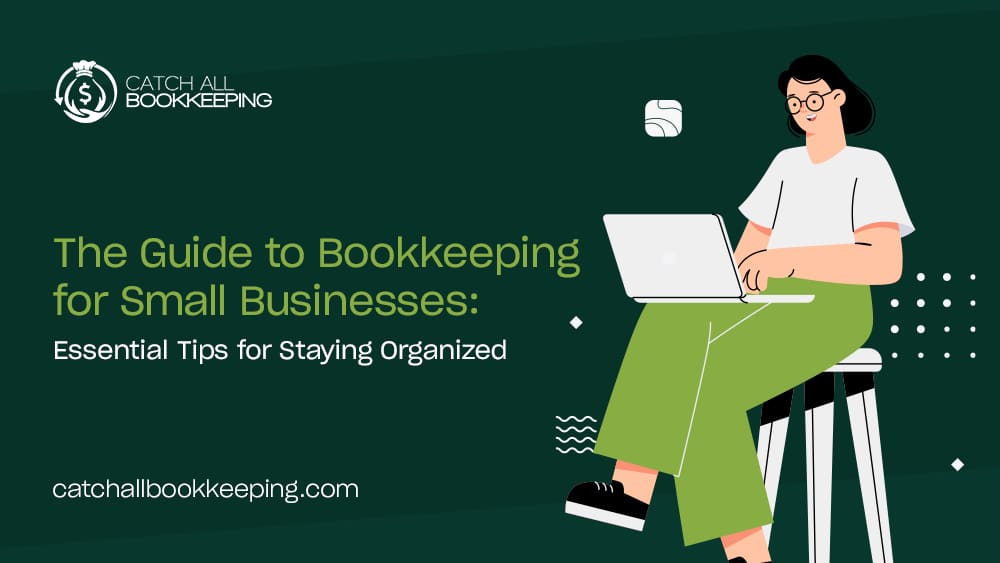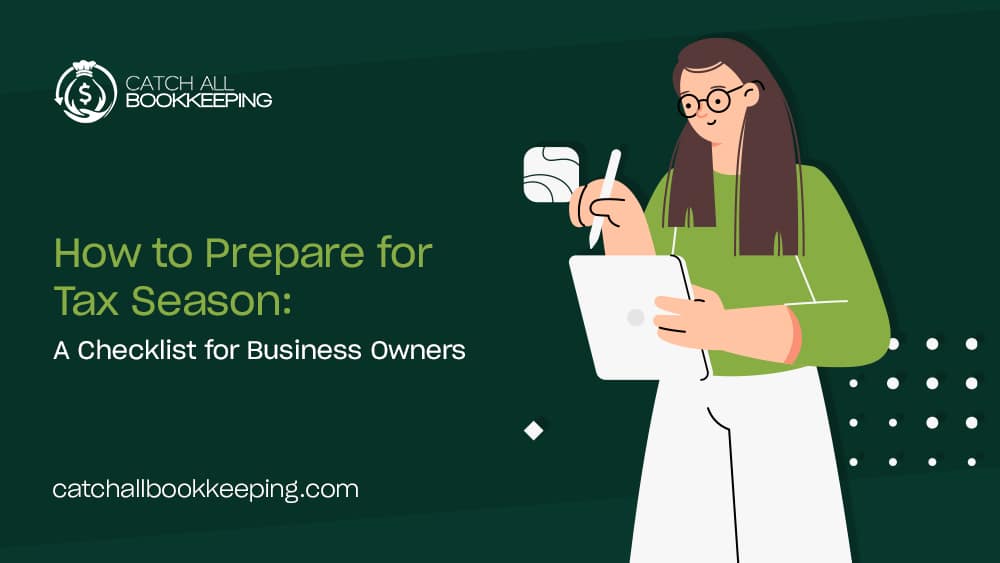Bookkeeping is a fundamental aspect of managing any small business. It involves recording and organizing financial transactions to ensure accuracy and provide a clear picture of a business’s financial health.
Despite its importance, many small business owners find bookkeeping challenging or overlook it altogether, leading to financial disarray and costly mistakes. This guide aims to simplify bookkeeping and offer essential tips to help small businesses stay organized.
Understanding the Basics of Bookkeeping
Before diving into the nitty-gritty of bookkeeping, it’s important to understand its basic components:
- Transactions: These are any financial activities within a business, such as sales, purchases, receipts, and payments.
- Ledgers: Ledgers are records where all transactions are listed. Common types include the sales ledger, purchase ledger, and general ledger.
- Accounts: Accounts categorize transactions (e.g., assets, liabilities, income, expenses).
- Chart of Accounts: This is a structured list of all accounts used by a business, providing a framework for organizing financial transactions.
The Importance of Accurate Bookkeeping
Accurate bookkeeping is vital for several reasons:
- Legal Compliance: Keeping detailed and accurate records is essential for tax purposes and ensures compliance with local, state, and federal laws.
- Financial Analysis: Proper bookkeeping helps business owners analyze financial performance, understand cash flow, and make informed decisions.
- Preparing for Tax Season: Organized records simplify the tax filing process and help avoid errors that could lead to audits or penalties.
- Securing Funding: Lenders and investors often require detailed financial records to assess the viability of a business.
Essential Bookkeeping Tips for Small Businesses
Now that we understand the importance of bookkeeping, let’s explore some essential tips to help small businesses stay organized and maintain accurate records.
A. Set Up a Proper Chart of Accounts
A chart of accounts (COA) is a systematic listing of all accounts a business uses to record transactions. Setting up a COA tailored to your business’s specific needs is crucial. Here are steps to create an effective COA:
- Categorize Accounts: Divide accounts into main categories like assets, liabilities, equity, income, and expenses. Subdivide further into specific accounts (e.g., under expenses, create separate accounts for rent, utilities, and payroll).
- Use Consistent Naming: Maintain uniformity in account names for ease of use and consistency in financial reporting.
- Regular Review: Periodically review and update the COA to reflect any changes in the business.
B. Choose the Right Bookkeeping Method
There are two primary bookkeeping methods: single-entry and double-entry.
- Single-Entry System: Suitable for small businesses with simple transactions. Each transaction is recorded once, either as an income or expense. It’s easy to maintain but lacks depth and is prone to errors.
- Double-Entry System: This method records each transaction in two accounts: debit and credit. It’s more complex but provides a comprehensive view of financial health and reduces errors. For most small businesses, especially those planning to grow, double-entry bookkeeping is recommended.
C. Use Accounting Software
Gone are the days when bookkeeping meant dealing with piles of paperwork. Today, various accounting software options streamline the process, making it easier and more efficient.
- Benefits of Accounting Software:
- Automates repetitive tasks (e.g., invoicing, payroll).
- Generates real-time financial reports.
- Enhances accuracy and reduces the likelihood of errors.
- Integrates with other business tools (e.g., CRM, inventory management).
- Popular Software for Small Businesses:
- QuickBooks: User-friendly and widely used among small businesses.
- Xero: Offers robust features and is ideal for businesses with international transactions.
- Wave: A free option that caters to the needs of small businesses and freelancers.
D. Keep Business and Personal Finances Separate
Mixing personal and business finances is a common mistake among small business owners. It complicates bookkeeping and can lead to legal and tax issues. Here’s how to keep them separate:
- Open a Business Bank Account: Use it exclusively for business transactions to simplify record-keeping.
- Use a Business Credit Card: It helps track expenses and build business credit.
- Reimburse Personal Expenses: If you must pay for a business expense with personal funds, reimburse yourself through the business account and keep proper documentation.
E. Maintain Receipts and Invoices
Keeping track of all receipts and invoices is crucial for accurate bookkeeping. Here are some tips:
- Digitize Receipts: Use apps like Expensify or Receipt Bank to scan and store receipts digitally. This prevents loss and makes organizing easier.
- Record Invoices Promptly: Issue and record invoices as soon as possible to maintain cash flow and ensure timely payments.
- Organize by Category: Categorize receipts and invoices by type (e.g., sales, expenses) and date for easy retrieval.
F. Reconcile Bank Statements Regularly
Bank reconciliation involves comparing your financial records with your bank statement to ensure they match. This is an essential step in maintaining accurate records.
- Schedule Regular Reconciliations: Perform reconciliations monthly or more frequently if you have a high volume of transactions.
- Investigate Discrepancies: If there are discrepancies, investigate and resolve them promptly to avoid issues later.
G. Track and Manage Cash Flow
Cash flow is the lifeblood of any business. Effective cash flow management involves monitoring the movement of money in and out of your business.
- Create a Cash Flow Statement: This document summarizes all cash inflows and outflows over a period. It helps in understanding liquidity and planning for future expenses.
- Monitor Receivables and Payables: Keep an eye on outstanding invoices and follow up on late payments. Similarly, stay on top of your payables to avoid late fees and maintain good vendor relationships.
H. Stay Up-to-Date with Tax Laws and Regulations
Tax laws and regulations frequently change, and it’s essential to stay informed to ensure compliance.
- Consult a Professional: Engage a qualified accountant or tax professional to guide you through complex tax issues and keep you updated on any changes.
- Use Accounting Software Updates: Ensure your accounting software is up-to-date, as most providers update their systems to reflect changes in tax laws.
Common Bookkeeping Mistakes to Avoid
Even with the best intentions, small business owners can make bookkeeping mistakes. Here are some common pitfalls to avoid:
- Procrastinating on Bookkeeping: Delaying bookkeeping tasks can lead to a backlog of work and errors. Schedule regular bookkeeping sessions to keep everything up-to-date.
- Not Backing Up Financial Data: Ensure your financial data is backed up regularly, either through cloud storage or physical copies, to prevent loss in case of a system failure.
- Misclassifying Transactions: Incorrectly categorizing transactions can skew financial reports and lead to inaccurate financial analysis. Double-check your entries to ensure they are correctly classified.
- Ignoring Small Transactions: Even minor transactions should be recorded. Over time, these small amounts can add up and affect your financial statements.
When to Hire a Professional Bookkeeper
As your business grows, bookkeeping can become more complex and time-consuming. Here are signs it may be time to hire a professional bookkeeper:
- You’re Spending Too Much Time on Bookkeeping: If bookkeeping is taking time away from running your business, it may be worth hiring a professional.
- You’re Not Confident in Your Financial Records: If you’re unsure about the accuracy of your records, a professional can provide peace of mind.
- You’re Preparing for Expansion: When planning to expand, professional bookkeeping can help ensure your financial records are in order and ready for scrutiny from lenders or investors.
Conclusion
Bookkeeping is a critical function for small businesses, providing the foundation for informed decision-making and financial health. By understanding the basics, choosing the right tools, and following best practices, you can maintain accurate records and stay organized.
Remember, good bookkeeping is not just about compliance; it’s about gaining insights that help your business grow. With the right approach, you can take control of your finances and set your business up for long-term success.



